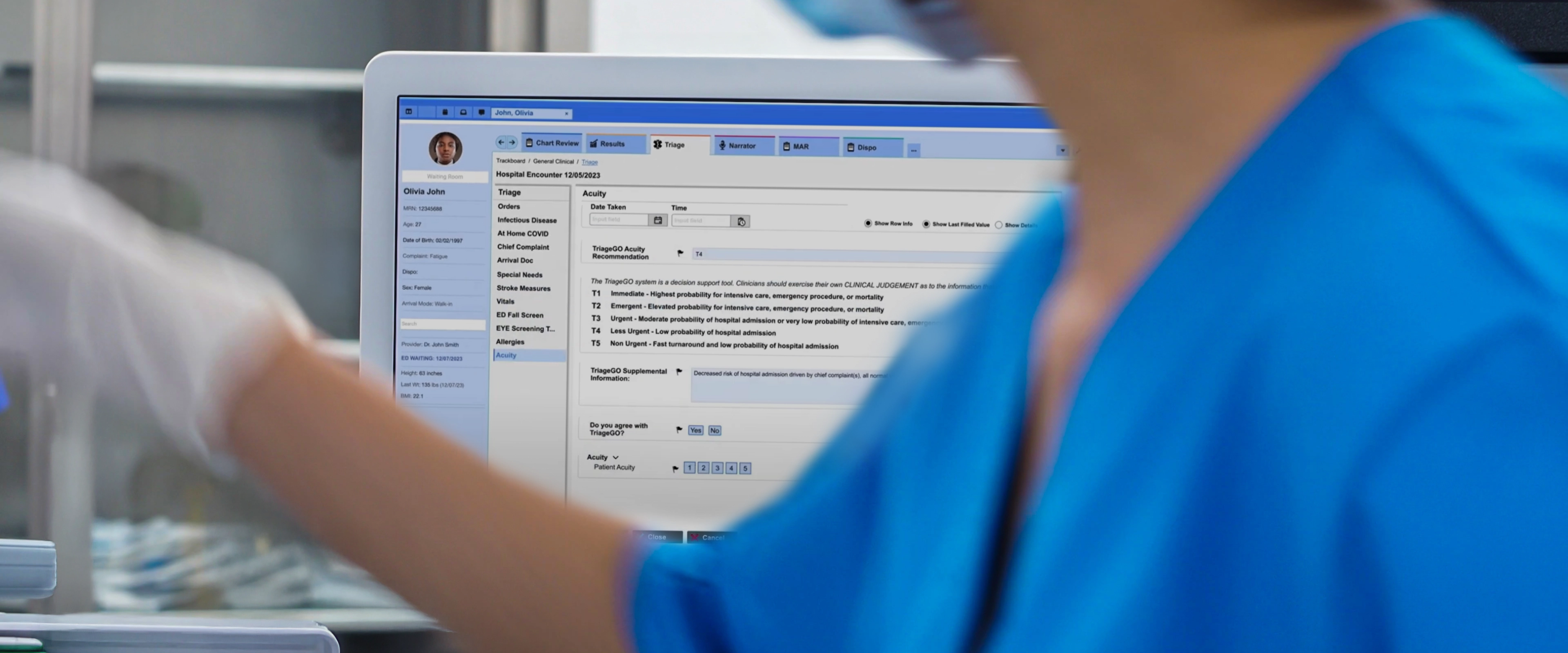On February 27th 2025, the New England Journal of Medicine AI [1] published the most comprehensive study ever done on AI-enabled clinical decision support (CDS) tool, TriageGO, at Yale New Haven Health.
The multisite study demonstrated improvements in triage accuracy and efficiency and shows how AI-informed triage decision support can be an asset in emergency healthcare, enhancing triage performance and patient flow.
“The potential benefits of artificial intelligence in healthcare are numerous and the implementation of AI-informed triaging tools marks a significant milestone in emergency healthcare”, says Davide Manissero, Chief Medical Officer at Radiometer. “Around the world, and in the United States in particular, EDs are facing overcrowding, shortage of staff and budget constraints, and AI tools like TriageGO, are proving to help healthcare institutions do more with less. While it can never replace the clinical judgment of a healthcare professional or their role as caregivers, it can help free up time and support decision-making”
You can read more about the study on the New England Journal of Medicine AI site here.
TriageGO is currently only available in the US.
Read more about TriageGO here. Follow and connect with Radiometer on LinkedIn and Facebook.
Reference:
1. Taylor RA, Chmura C, Hinson J, et al. Impact of artificial intelligence-based triage decision support on emergency department care. NEJM AI 2025;2(3).
ABOUT TRIAGEGO
TriageGO is a clinical decision support (CDS) tool designed for use in the emergency department (ED). It leverages artificial intelligence (AI) to analyze routinely available triage data including the patient’s presenting complaints, vital signs, demographic information, and medical history from the Electronic Health Record (EHR) to provide a triage level recommendation between 1 and 5. This recommendation is intended to support, but not replace, the clinical judgment of healthcare professionals (HCPs) during patient evaluation. The final triage level assignment is the responsibility of the qualified examining HCP, who must use their clinical judgment as the primary factor in decision-making. TriageGO was developed by researchers at Johns Hopkins Medicine and subsequently the affiliated startup, StoCastic, before being acquired by Danaher in late 2022 as part of the Beckman Coulter portfolio. TriageGO complements Radiometer’s growing suite of Clinical Intelligence software products offered for acute healthcare settings.
ABOUT RADIOMETER
Whatever comes next, we make sure life comes first. Radiometer develops, manufactures, and markets solutions for blood sampling, blood gas analysis, transcutaneous monitoring, immunoassay testing, and related IT management systems. Today, Radiometer's products and solutions are used in hospitals, clinics, and laboratories in over 130 countries, providing information on critical parameters in acute care diagnostics. Through connected solutions, expert knowledge, and trusted partnerships, we help health care professionals make diagnostic decisions to improve patient care. To learn more, visit www.radiometer.com.

